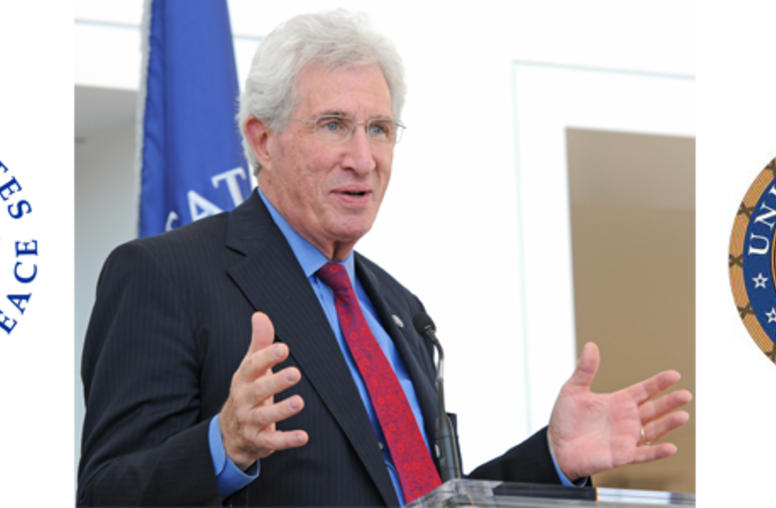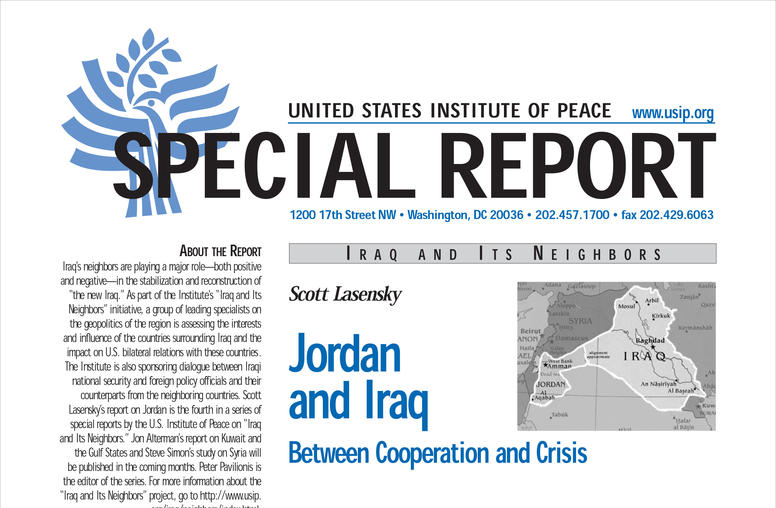Publications
Articles, publications, books, tools and multimedia features from the U.S. Institute of Peace provide the latest news, analysis, research findings, practitioner guides and reports, all related to the conflict zones and issues that are at the center of the Institute’s work to prevent and reduce violent conflict.
2004-2005 Winning Essay
National First Place Winner Jessica Perrigan Duchesne Academy Omaha, Nebraska Coordinator: Ms. Virgie Oatman Fukuzawa Yukichi, the foremost proponent of modern education in Japan, expressed an essential truth of civilization when he said “schools, industries, armies and navies are the mere external forms of civilization. They are not difficult to produce. All that is needed is the money to pay for them. Yet there remains something immaterial, something that cannot be seen or heard, bough...
2003–2004 National Winner
Vivek Viswanathan Herricks High School New Hyde Park, New York Coordinator: Ms. Melissa Jacobs While the resolution of armed conflict may bring initial order within a war-torn nation, it does not guarantee long-term peace and stability. Establishing an orderly society from the ruins of war—enacting a workable political, economic, and social structure in a place where violence and instability have been the rule—is an undertaking that is necessarily complex. Moreover, the discontinuation of...
2002–2003 National Winner
Kevin Kiley Granite Bay High School Granite Bay, California Coordinator: Ms. Rita Prichard War causes harm; of this there is no doubt. In determining the justification of war, the question hence becomes: when is it justified to cause harm? The only morally acceptable answer is that causing harm is justified if it prevents further harm. Thus, in general terms, the only justifiable reason to go to war is to minimize harm—if war is the lesser of two evils. Underlying the issue of just and u...
2001–2002 National Winning Essay
David Epstein Pikesville High School Baltimore, Maryland Coordinator: Mr. Martr Hotz With the end of an era when nations have habitually realized their territorial ambitions on the battlefield and with the dissolution of the Soviet Union, large-scale rivalries between countries have mostly given way to internecine conflicts. These clashes have been precipitated by a host of factors: military coups by rapacious generals, conflicting political ideologies, and most significant of all, tra...
Religion, Conflict, and Education
USIP's Current Projects on Religion, Conflict, and Education Curricular Material for Madrassas In Indonesia, USIP is working with local Islamic scholars and clergy to develop curricular materials that provide contemporary interpretations of Islamic texts on peace, violence, interfaith relations, human rights, the status of women, and the environment. Materials developed in Aceh have been piloted and embraced by local ulama. The materials are currently being translated into English and...

Congressional Testimony: Institute President Richard H. Solomon and the Institute's Budget Request for Fiscal Year 2001
Remarks by Institute President Richard H. Solomon.

American Foreign Policy and Islamic Renewal (Arabic Edition)
Summary The United States still lacks an integrated and sustainable strategy to confront religious extremism in the Muslim world. Policymakers have failed to recognize that the challenge is not only a conflict with the West but also involves ideological shifts within the Muslim world. These shifts have precipitated a major battle for the future of Islam as a faith and a civilization.
Who Are Iraq's New Leaders? What Do They Want? (Arabic Edition)
Summary Understanding the background and visions of Iraq's new leaders is critical to analyzing where the country may go in the future. Changes in leadership since Saddam have been revolutionary. Among Iraq's new leaders there are virtually no holdovers from the Ba'th era. A "de-Ba'thification" program to remove the old guard reinforces the divide between those who held office before and those who hold it now.